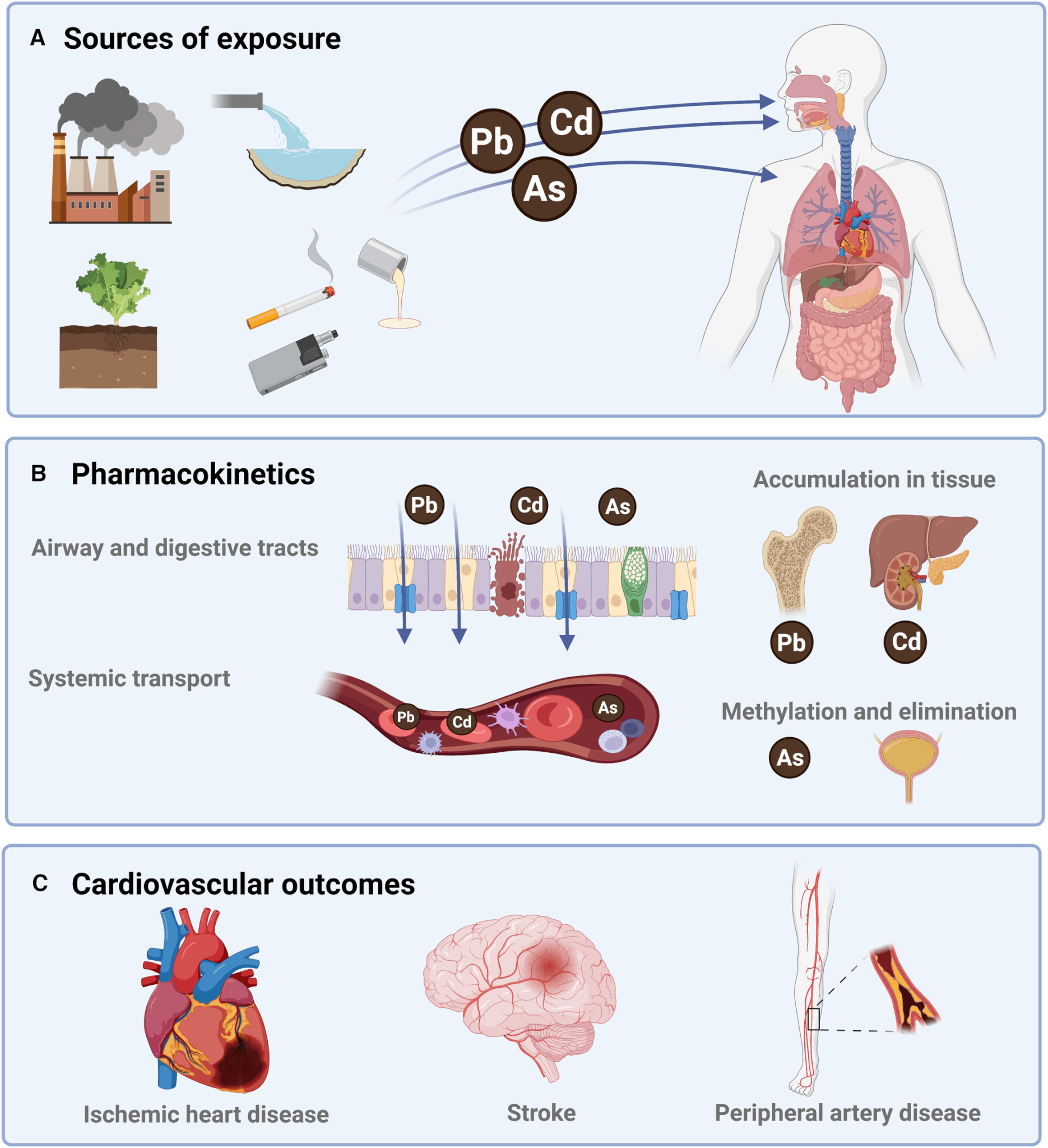DALLAS — Metal pollution, even in small amounts, increases the risk of cardiovascular disease, potentially leading to strokes and heart attacks, a new study warns. Scientists have found that everyday foods and drinks, including chocolate, juices, plant-based milk, teas, and sodas, often contain traces of poisonous chemicals like arsenic, lead, and cadmium.
These toxic elements, which naturally exist in our soil, water, and atmosphere, have been linked to the world’s leading cause of death due to chronic exposure at low or moderate levels. The American Heart Association (AHA) cautions that this has significant implications for both clinical and public health. Environmental toxicants are not currently included among traditional risk factors.
“Large population studies indicate that even low-level exposure to contaminant metals is near-universal and contributes to the burden of cardiovascular disease, especially heart attacks, stroke, disease of the arteries to the legs, and premature death from cardiac causes,” says Professor Gervasio Lamas, chair of the writing group and a researcher at Mount Sinai Medical Center in Miami Beach, in a media release.
An analysis last year discovered lead and cadmium in all 28 popular chocolate brands tested. Cadmium, absorbed by the roots of cocoa plants, ends up in cocoa beans, while lead is spread by wind in surrounding areas as the beans dry in the open.
“These metals interfere with essential biological functions and affect most populations on a global scale. After exposure, lead and cadmium accumulate in the body and remain in bones and organs for decades,” explains Professor Ana Navas-Acien, vice chair of the writing group and a researcher at Columbia University. “In the U.S. alone, one large study suggested that more than 450,000 deaths annually could be attributed to lead exposure.”

Contaminant metals are regularly consumed through daily living activities, and found in a variety of items such as old paint, ceramics, kitchenware, water pipes, cosmetics, electronics, and industrial emissions. Cadmium can be found in batteries, pigments, plastic, ceramics, glassware, and construction products.
“This is a global issue in which lower-income communities are disproportionately exposed to toxic metals through contaminated air, water, and soil,” says Prof. Navas-Acien.
Vulnerable individuals include those living near busy roads, industrial plants, or hazardous waste sites, as well as residents of older houses or areas where environmental regulations are poorly enforced. The study reports that global epidemiological research confirms that lead, cadmium, and arsenic are associated with premature death, largely due to increased cardiovascular disease risk.
The research group suggests that environmental metal levels should be monitored and individuals should be tested for metals as crucial steps towards implementing appropriate public health initiatives. While lead levels in children with symptoms of exposure are monitored through blood tests, no monitoring guidelines or exposure limits have been established for adults.
“Cardiovascular health may be improved with a multi-pronged approach that includes environmental monitoring and biomonitoring of contaminant metals, controlling sources of exposure, and developing clinical interventions that remove metals or weaken their effects on the body,” adds Prof. Lamas.
Current research is exploring the use of chelating agents, which are medications that can remove contaminant metals from the body. Small trials of nutritional supplements, including folate and N-acetyl cysteine, have suggested they may also accelerate excretion.
The scientific statement is published in the Journal of the American Heart Association.
South West News Service writer Mark Waghorn contributed to this report.

